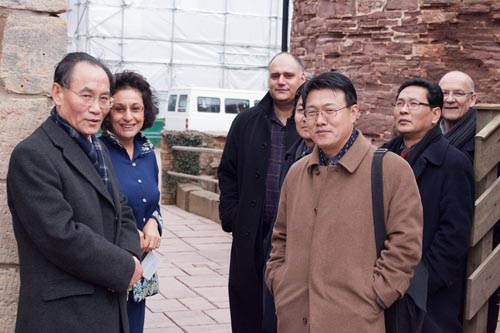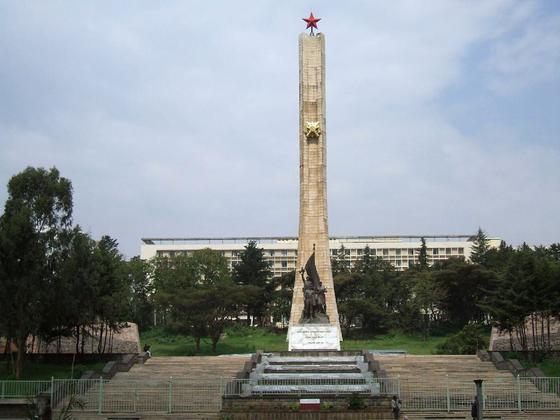UPDATE 3: February 26, 2009. According to Yonhap:
Prosecutors on Thursday questioned two activists who brought in North Korean bills for their leaflet campaign criticizing North Korea, allegedly in violation of South Korean law.
The South Korean government has not restricted the controversial leaflet campaign, which criticizes North Korean leader Kim Jong-il as “the most vicious dictator and murderer,” saying there was no law to stop it.
But the Unification Ministry requested a probe for the first time last week, after the activists attached North Korean banknotes to their flyers to encourage North Korean citizens to pick them up.
Bringing North Korean money into South Korea is permitted only for trade purposes or for personal possession. Violations can result in up to three years in jail or 10 million won (US$6,562) in fines, according to the law on inter-Korean exchange and cooperation.
A North Korean defector, Park Sang-hak, and Choi Sung-yong whose fisherman father is allegedly being held in North Korea, flew scores of North Korean banknotes attached to some 20,000 propaganda leaflets toward North Korea via gas-filled balloons on Feb. 16, Kim’s birthday. Most of the flyers never reached the North, however, because of unfavorable winds.
Prosecutors said they questioned the activists about how the North Korean money was brought in. Other details were not available.
“They asked us how we acquired the North Korean bills and how much we have,” Park said.
UPDATE 2: February 16, 2009. Kim Jong Il’s official birthday. The activists called Seoul’s bluff and sent the flyers across the DMZ with DPRK won in tow. Nothing has happened. Pyongyang has not yet complained in the press (as of 2/24).
UPDATE: South Korean government declares the use of DPRK won by groups is illegal:
“It is against the law for civic groups to bring in North Korean currency [into the ROK] without Unification Minister authorization and enclose it in leaflets,” ministry spokesman Kim Ho-nyeon said at a news briefing.
“It is the related ministries’ position that such a request for authorization, if it comes, is likely to harm the order of South-North cooperation and thus will not be granted.”
In other words: “You need permission to do this and we will not give it to you.” But according to Yonhap:
Defying the announcement, organizations of North Korean defectors and families of abducted South Koreans vowed to go ahead with a plan to fly a fresh batch of propaganda leaflets across the heavily fortified border in February. They said the new leaflets will be flown with North Korean bills attached to encourage people to pick them up.
If they go through with this plan, the stage will be set for what I assume will be a well-publicized showdown between the police and North Korean defector groups.
ORIGINAL POST:
South Korea-based human rights groups garnered headlines last year by sending hundreds of thousands of leaflets about Kim Jong il’s lifestyle into the DPRK attached to balloons. (A copy of the leaflet and a rough English explication can be found here). Not only did these leaflets promt repeated public complaints from Pyongyang, but they were also blamed for the North’s unilateral “renegotiation” of inter-Korean cooperation projects in Kaesong—which reduced cross border civilian traffic to 880—about 20% of the 4,200 licensed to enter the Kaesong Complex. Of course closing down these projects was also a goal of the human rights groups, so in the end Pyongyang delivered its most vocal critics a double victory: South Korean subsidies to the North via Kaesong have been drastically curtailed and the balloons, which were temporarily suspended, have resumed.
As an aside, there is evidence that the Kaesong projects were curtailed for other reasons, most notably internal political concerns and/or the politics of North-South relations. No matter the true cause(s), Pyongyang publicly blamed the leaflets.
Although Pyongyang has discovered it had little political leverage over the supply side of the leaflet market, it retains significant leverage over the demand side. Quoting from Yonhap:
North Korea is arresting citizens who possess U.S. one dollar bills as a way to crack down on packages of anti-Pyongyang propaganda leaflets sent by South Korean activists that include the currency, an activist here said Wednesday.
The North’s spy agency, the State Security Agency, issued the directive in early November to stop citizens from collecting the leaflets that criticize leader Kim Jong-il and his communist regime, said Park Sang-hak, a North Korean defector and leader of Fighters For Free North Korea in Seoul.
So now we move to round three. How will the human rights groups respond?
South Korean activist groups will attach N. Korean currency to anti-Pyongyang leaflets sent into North Korea, replacing US$1 bills, following rumors that citizens found with the notes are punished, an activist said Thursday.
Seoul’s National Intelligence Service confirmed that North Korean authorities arrest and interrogate those who possess U.S. dollars that allegedly came with the leaflets from South Korea. But the spy agency declined to comment on what kind of punishment they face.
To prevent further arrests, Park Sang-hak, a North Korean defector and head of Fighters for Free North Korea in Seoul, said his organization and another activist group will send 5,000 won North Korean notes — the highest denomination in the country — when they fly a fresh batch of balloons into North Korea next month.
The amount is just enough to purchase about 2kg of rice, officials and aid workers say, and is a little more than the average monthly salary for urban workers. A North Korean household needs at least 20,000 won a month to survive, they added.
This is an interesting move as it increases the demand for leaflets in the DPRK in two important ways. The first, is that low-level workers and cadres will find it much easier to possess and spend DPRK won (compared to $US), particularly in the southern provinces. Secondly, the DPRK-US$ exchange rate is about W3,000/$1, so the switch represents a 66% increase in purchasing power per collected note!
Of course this raises the question of where they will get the DPRK won:
Park refused to elaborate on how he acquired the North Korean bills, except to say that they passed through China’s border region with North Korea.
South Koreans can bring North Korean money into the country only for trade purposes and must first receive government approval to do so. Failure to abide by these restrictions can result in three years in jail or a 20 million won (US$15,198) fine. The ministry is reviewing whether the activists’ possession of North Korean bills was legitimate.
But other than creating routine problems for North Korean state security, I am not sure what specific results human rights groups seek from these activities. North Korea’s information blockade cracked over a decade ago—even in the southern provinces where the balloons drift. Although people in these areas might possess little positive information about the outside world, they probably have a general sense that the state of global affairs is not as their leaders portray. So, breaking the information blockade is a necessary but not sufficient condition for social change in the DPRK.
Unfortunately, the information on the leaflets is predominately non-actionable. Rather than condemning Kim Jong il’s lifestyle, the leaflets should provide instructions on accessing foreign radio and television broadcasts, tactics for clandestine organization, case studies in successful defection, business and smuggling opportunities, local prices, and even mundane news like sports scores, movie reviews, etc. This would likely be much more valuable to the North Koreans than political propaganda.
This is an interesting tactic, however, and I look forward to seeing what the next moves will be from players in both the North and South.
Read the full articles here:
N. Korea arresting carriers of $1 bills to stop anti-Pyongyang leaflets: activist
Yonhap
Kim Hyun
1/7/2009
Activists to send N. Korean currency with anti-Pyongyang leaflets
Yonhap
Kim Hyun
1/8/2009
North Korea cash sent with leaflets illegal: Seoul
Reuters
Jack Kim
1/27/2009
Seoul bars activists from bringing in N. Korean currency
Yonhap
1/28/2009


